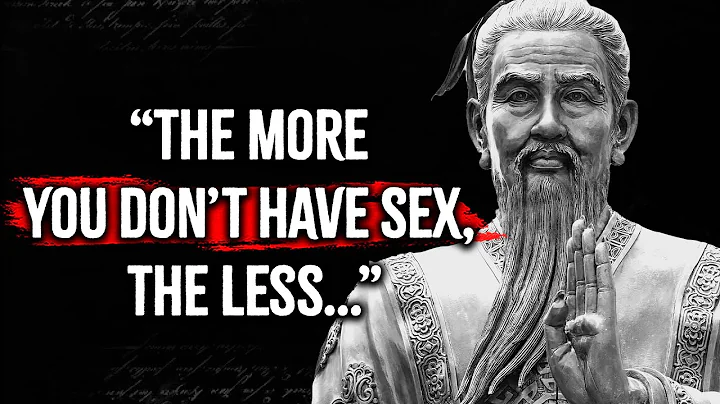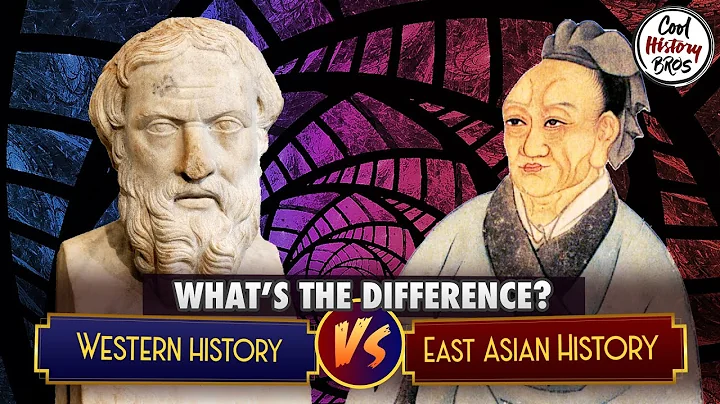"A gentleman wants to be slow in words but quick in deeds." I believe everyone is familiar with this sentence. It comes from the "Analects of Confucius", which means that a gentleman is always cautious in speaking and quick in action. Sima Qian In "Historical Records", this sentence of Confucius was used to evaluate Wei Wan's character, which can be said to be highly praised. Who is Wei Wan who can make Tai Shigong use Confucius 's wonderful sentences for affirmation?
Wei Wan offended Emperor Jing of Han Dynasty
Wei Wan was a native of generation county. He began to follow Emperor Wen of Han Dynasty when he was young. Relying on his chariot skills, he was promoted to the position of Zhonglang General.

Once, the prince held a banquet in honor of the ministers of Emperor Wen of Han Dynasty. It was a great honor to be invited by the prince, so of course many people went to the banquet. However, Wei Wan found an excuse, saying that she was ill and did not attend the banquet. The prince hated Wei Wan because of this.
Before Emperor Wen of the Han Dynasty died, he told the prince: "Wei Wan is a loyal and honest elder. You should treat him well." The prince succeeded to the throne and became Emperor Jing of Han Dynasty.
Emperor Jing of the Han Dynasty was resentful towards Wei Wan, but he also appreciated the late emperor's last wish and did not embarrass Wei Wan. Emperor Jing of the Han Dynasty did not summon Wei Wan for more than a year.
Emperor Jing of the Han Dynasty questioned Wei Wan
One day, Emperor Jing of the Han Dynasty invited Wei Wan to ride in a car together and visit Shanglinyuan. Emperor Jing of the Han Dynasty asked Wei Wan: "Do you know why you can ride in the same car with me?" Wei Wan replied: "I don't know." Emperor Jing of the Han Dynasty continued to question: "When I was the crown prince, I invited you to a banquet, why didn't you come? ?"

Wei Wan was feeling frightened at this time. It turned out that the emperor was here to settle old scores. If his answer was slightly negligent, his future might be in jeopardy. Wei Wan replied: "I am guilty of death because I was ill that day."
Perhaps when Wei Wan did not attend the banquet, Emperor Jing of the Han Dynasty did complain that Wei Wan was ungrateful. However, Emperor Han Jing was a smart man after all. After such a long time, he more or less understood Wei Wan's difficulties.

At that time, Wei Wan, as a close minister of Emperor Hanwen, his job was to be loyal to Emperor Hanwen and avoid the emperor's suspicion. As the crown prince at that time, Emperor Jing of the Han Dynasty entertained the ministers and kept in touch with each other, so there was no big problem at first. However, Wei Wan, who is careful, feels that the old emperor is still around, and if she gets too close to the prince, misunderstandings may arise.
Out of respect for Emperor Hanwen, Wei Wan kept a distance from the prince. After succeeding to the throne, Emperor Jing of the Han Dynasty had already thought clearly about Wei Wan's difficulties at that time, and then wanted to give him a beating, so there was a conversation about riding in the car.

Emperor Jing of the Han Dynasty asked the question knowingly, so he opened up old accounts just to see how Wei Wan would answer. If Wei Wan expressed his true thoughts at this time: "I was not sick at the time, I just couldn't help myself and couldn't get too close to His Majesty." This is indeed the truth, but if he actually pretended to be sick back then, it would be the crime of deceiving the emperor, and he would You have said it so thoroughly. If you think Emperor Jing of the Han Dynasty is a fool, can't he himself see it? If Wei Wan told the truth, he would be sorry not only for his own IQ, but also for the intelligence of Emperor Han Jing.
Therefore, the wise Wei Wan reacted quickly and insisted on the reason he had before. It was indeed because he was ill and could not come. Emperor Jing of the Han Dynasty appreciated this answer very much, so he proposed to reward Wei Wan with a sword. However, Wei Wan once again replied astutely: "The late emperor gave me six swords, and I dare not accept any more rewards."
Emperor Jing of the Han Dynasty did not believe it, because at that time, swords could be exchanged for many valuable items, and ordinary people got swords. After that, it’s all used for exchange. Emperor Jing of the Han Dynasty immediately ordered people to go to Wei Wan's house to get the swords. When he brought them in, he found that the six swords were intact and well preserved.
Emperor Jing of the Han Dynasty immediately understood Wei Wan's loyalty to the late emperor. If he continued to appoint Wei Wan, he would definitely gain Wei Wan's loyalty.

As a result, Emperor Jing of the Han Dynasty began to reuse Wei Wan. During the Seven Kingdoms Rebellion , Wei Wan served as a general. He served successfully in suppressing the rebellion and was promoted to lieutenant. After Liu Che became the crown prince, Emperor Jing of the Han Dynasty appointed Wei Wan as the crown prince's tutor. A few years later, Wei Wan became prime minister, but he was cautious and did not make many achievements.
Conclusion
Emperor Jing of the Han Dynasty was a wise king and very capable. He did not need a strong prime minister. He only needed the prime minister to be like a herald, who could upload and issue orders. Zhou Yafu , who quelled the rebellion of the Seven Kingdoms, became increasingly arrogant. He became prime minister and conflicted with Emperor Jing of the Han Dynasty's plans several times in terms of governance. Emperor Jing of the Han Dynasty increasingly disliked Zhou Yafu, and at the same time felt that the prince would not be able to control him in the future, so he took the opportunity to deal with him.

Compared with Zhou Yafu, Wei Wan has completely different personalities. Emperor Jing of the Han Dynasty needed Minister Tuogu to be an honest and honest person, not a reckless person who was difficult to control. Perhaps Wei Wan's ability to lead troops and fight in battles was not as good as Zhou Yafu's, but in terms of serving the emperor, Wei Wan was obviously already proficient in his skills.





















